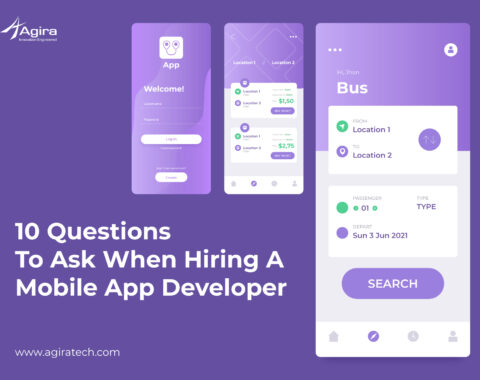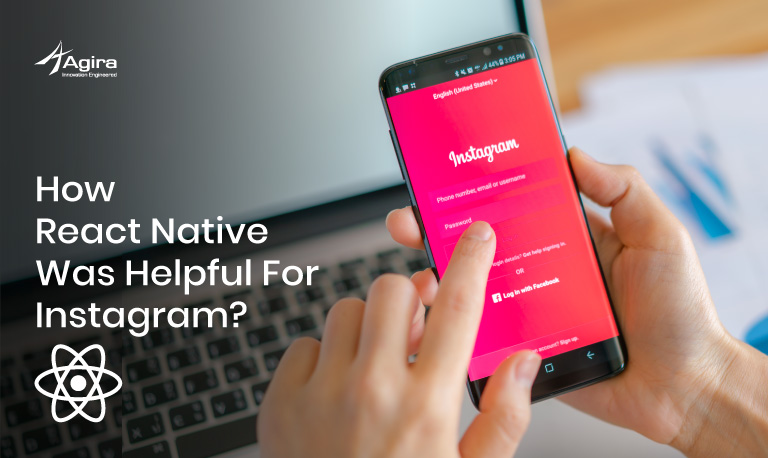In our world of technological advancements, mobiles are making our lives a lot easier. Our mobiles are being embedded with numerous apps that provide us all the functions that we need. Nowadays, businesses are targeting this sector for their business marketing, development, and growth. Many businesses have been concentrating extensively and have started developing apps by looking at the customer’s requirements. This has led to a huge competition in the market as each of them has started developing apps to provide to the customers.
Despite the businesses having loads of knowledge with regards to the development and also hiring a huge mobile development team, there are a few myths or misconceptions that continue to hamper their development. These myths include the misguided thoughts which hinder the business growth, development and success of the app. Some of the most deadly myths include-
1. Developing enterprise apps is a long drawn out process
It is assumed that the conventional method for app development is time-consuming. This is not the case though, as the modern and innovative technologies that are being implemented facilitate swift development and deployment. Large and skilled programmers minimize the development time by reusing the code or by using ready-made solutions to minimize coding. The most recent cross- platform development method also drastically reduces development time as an app can be developed in multiple platforms like Android, Windows and iOS all in one-go. This is something that the larger enterprises need to be careful about.
2. Mobile App Development is a not a one-off project
This is a very silly myth that developing the app and launching it will mean that the whole project is complete. This is not the case because app development project is like a business. The apps need to evolve with customer requirements, business requirements and also change in technology. The apps that are being launched need to be assessed regularly to note the possible changes that can be implemented when the app will be launched the next time. An app that doesn’t get updated regularly will become obsolete. The start-ups need to keep this in mind as they need to be up-to-date with their work to avoid being run over by the competition.
3. More the functions, better the app
An app is considered to be a simplified version of a website and is only meant to provide special functionalities which the users would require. Packing too many features into the app is bound to make it slow, hard to control, memory and battery hogging. The app must be designed with a specific target that it must fulfill, and only those particular features must be provided to the users. The app must instead concentrate on more intricate details like a good UI, UX, keeping the user in control, reducing the memory load on the user, etc. The startups and the SME need to resist the urge to overburden their app with too many functions.
4. Hard to afford mobile app development
Developing a mobile app undergoes a long process with numerous intermediate steps. It requires proper skills, commitment and efficiency to develop apps of the highest order. This requires hiring proper technical guys who will be perform tasks coding, developing, testing etc. App development also requires latest technology to provide the developers the right tools and environment to develop the application. Hence, it is automatically assumed that the complete development phase becomes too costly, and the money that is invested might not be retrievable once the app is launched. This is not the case though. The start-ups need to realize that though the app development phase might cost a bit, but once the app is deployed it is pretty easy to retrieve whatever was spent earlier.
5. Mobile phones => Smartphones
This is a silly myth where all the mobile apps are equated with smart phones, not taking into account- Tablets, smart watches, cars, appliances, smart glasses, handheld consoles and other devices. The app requirements for these devices will be a lot different than the smart phones. This myth should be avoided, as not every app should be developed by keeping only smart phones and its users in mind.
6. Data Related Myths
Many enterprises have already made huge investments in Enterprise Resource Planning (ERP) and other similar systems. So they aren’t really keen to develop mobile apps which don’t fit in seamlessly into the already existing technologies. Backend systems and other software like Oracle, MySQL, and SAP may not be accessible through our mobiles phones. However, newer software like enterprise-grade Mobile backend as a service (MBaaS) solve such issues and enables our mobile to easily access the legacy systems. Hence, the enterprises need to get this assumption off their minds.
7. Mobile App development is all about writing the code only
Building an app has to undergo numerous steps right from the communication and requirements gathering phase till the testing and deployment phase. So contrary to common assumptions, the best coder doesn’t necessarily become the best developer. A developer needs to have expertise in many skills other than coding. There’s a lot more beyond coding, and don’t fall for this trap and select the best coder. This is a common myth that the startups need to look at as they believe the whole development phase requires expertise only in coding.
8. Users and customers are synonymous
App developers often alternate between the two groups- users and customers. A user is a person who interacts with the product whereas a customer is the person for that the app is actually design. Hence, there is a significant difference between the two, but the developers might fail to understand this. User experiences don’t address an app’s primary business concern. The question that an app developer must first ask themselves before they begin designing is why people would download his app. When he does question himself this way, he’ll begin to look at things in a customer’s perspective and would be able to build a successful product which the customers would value and use.
9. As soon as people see your app, they download it
The most successful apps generally look good on the eye. An effective User Interface is very necessary for it to look attractive to the customer. However, just a beautiful design won’t make the app successful. Its value proposition only does. Features like app’s unique benefits, how the app would benefit the customer and solve his problems, and how the app is different from the competition (similar apps) are extremely crucial for customers to download your app. Despite the eye for good graphics, what customers need more is for the app to solve the problem that they wish to address. Only if the app would do so effectively, would the customers download it.
10. The idea is everything (Small)
‘An idea can change your life’ is a common phrase that we have heard all too often. Though this is true, ideas without proper implementation are worthless. Proper planning and set targets are necessary to put those ideas to work. There are some very important factors to consider after the construction of the product idea. They are-
- Choosing the right timing
- The right market
- The right place
These factors are essential to make the developed app a success.
11. The app store is only for big publishers
Upcoming startups or small businesses assume that the marketplace is only for the big-shots. They are intimidated by the big-players in the market and feel that it is extremely difficult to establish them in such a competitive market. This is an extremely negative thought to start off with.
Any business with the right resources, ideas, a vision and a will to succeed can easily go on to establish themselves if they can act smartly.
Timing of the release is a crucial factor here, but they need to look to target the requirements of the customers. They will have to think from a customer’s perspective and understand what would be most attractive to them. When they get these things, it is not difficult to enter the mobile app world. Patience will be necessary as it might not be all rosy, but it is possible to be up there with the big-shots after a matter of time.
12. Downloads= Income
This is one of the most common misconceptions, as upcoming startups often believe that number of downloads is the most important factor in determining the success of an app. So they assume that when the number of downloads decline, their app isn’t performing well. The actual fact is that usage is the measurement of success of the app. This means that what happens once the app has been downloaded only determines whether the app is good or not. The developers need to understand this and focus on building their app in such a fashion that the customers will be have interest in using it for a prolong period of time.
13. Apps are a ‘nice to have’ and not ‘need to have’
Many small-scale businesses falsely believe that they would be popular among the customers just through their website. They don’t feel that developing mobile apps is a necessity for them. Due to this, they fail to explore the possibilities of growth of their business through mobile app development. Some think that developing a mobile app is optional and stick to the standard methods of marketing. They have to realize that almost each customer now possesses a mobile and would be interested in an app that they might develop, instead of having to go on to their website for each and everything. It makes it easier for the customer to reach you through mobile app.
14. Mobile application features have the same features as a website
Few small-scale businesses believe that mobile apps provide the same information as the website does. However, this isn’t the case. Mobile apps do contain information that the website does, but that’s not all. They would provide more extensive features that a website cannot.
For example- the maps app will provide GPS features that the website cannot.
The app can be streamline in such a way that it provides the user essential details. Instead of the whole info that the website provides.
15. Social Networking is enough
Some medium scale businesses consider that promoting their just Facebook, Twitter and LinkedIn are enough for promoting their business. However, the truth is that such social websites filter the posts that businesses use for marketing and many of those posts may be miss. It is therefore essential to develop a mobile app which can be use for promotional purposes along with the normal features that it does offer.










